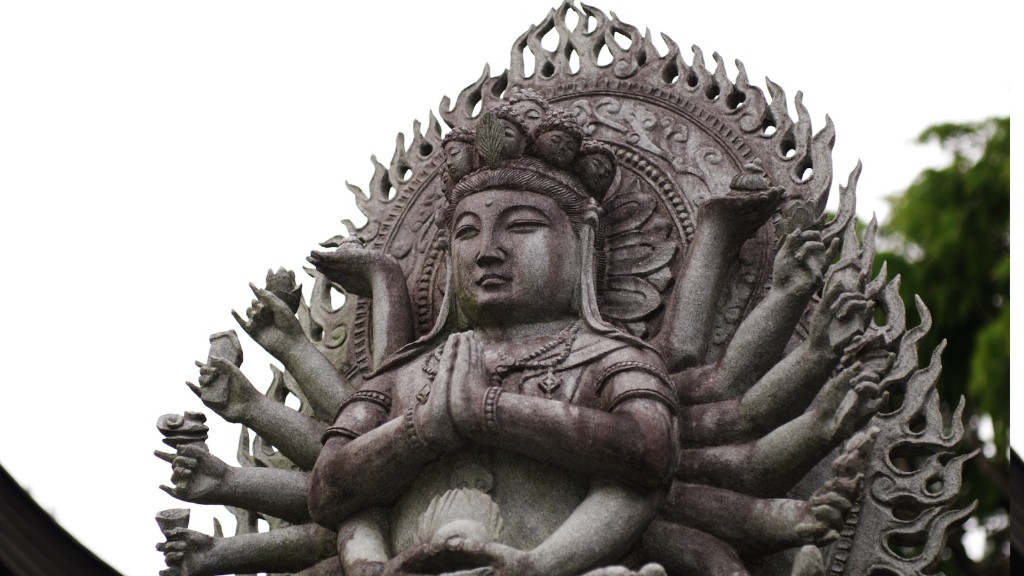1. Historical Context
The growth and widespread acceptance of Christianity as a major religion in Europe can be traced as far back as the Roman Empire. Early Christians were persecuted and had to practice their religion in secret, but by the end of the fourth century, Christianity had become the state religion of the Roman Empire. This meant that all citizens were, to some extent, expected to accept and follow the Christian religion.
It took more than a century for Christianity to spread to other parts of Europe, particularly to areas in the east and south, such as the Byzantine Empire and parts of the Mediterranean. During this time, there was a rapid expansion in the number of churches and missionaries throughout Europe. In the late Middle Ages, Christianity remained the dominant religion in Europe, and it was formalised further in the 16th century with the Catholic Reformation.
2. Impact of the Renaissance
In the 15th century, the Renaissance brought about a major cultural shift in Europe. This period brought about an increased emphasis on education, art and science. As part of this shift, it was also the period in which Christianity was able to spread further and become more deeply embedded in the culture of Europe.
At the same time, the Christian faith was also challenged by the rise of humanism and the accepted scientific view of the world. The result was a period of intense religious debate, which also helped to spread Christianity and cement its position as the dominant religion in Europe.
3. Social and Political Effects
The spread of Christianity had a number of social and political effects on Europe. As the religion spread, so did its values and beliefs. This meant that the social structure of Europe began to change, with increasingly rigid hierarchies and a greater emphasis on piety and religious observance.
The political effects of Christianity were perhaps even more significant. Christianity was closely tied to the absolute monarchy of various European states, as well as with the military might of Europe. This helped to ensure that Christianity remained the dominant religion in Europe for centuries, even as other faiths and beliefs emerged and threatened to challenge it.
4. Domination of the Church
The success of Christianity in Europe was closely linked to the power and reach of the Church. From the 17th century onwards, the Catholic Church maintained a strong presence in European politics and was able to impose its own rules and regulations on a wide range of areas, such as marriage, education and the economy.
The Church also had a major impact on the way in which people perceived the world, and was able to influence public opinion on a variety of matters. This allowed the Church to remain one of the main forces in Europe, and to help ensure that Christianity remained the dominant religion in Europe.
5. Separation of Church and State
The growing separation of Church and State in the 19th and 20th centuries has meant that Christianity has had to compete with other religions for dominance in Europe. In recent decades, there has been a growing number of atheists and agnostics in Europe, as well as significant numbers of Muslims and other religious believers. Despite this, Christianity still remains the dominant religion in Europe, and it has been estimated that two-thirds of Europeans still identify as Christian.
6. The Decline of Christianity in Europe
Despite its continued dominance in Europe, Christianity is in decline in Europe. As younger generations become more secular, the number of practicing Christians is steadily decreasing. Additionally, increasing numbers of Europeans are choosing to convert to other religions, or to identify as non-religious.
This trend is particularly visible in countries such as Ireland, Poland and Germany, and it is likely to continue in the coming years. This could lead to significant changes in the cultural and political landscape of Europe, and could lead to the emergence of new religious beliefs.
7. The Role of Christianity in Europe Today
Today, Christianity plays a significant role in the culture and politics of Europe. In many countries, religious values and beliefs remain influential, and there is still a close connection between the Church and the State. Despite this, there is a growing acceptance of other religious beliefs, as well as of secularism, which is slowly leading to greater religious pluralism in Europe.
At the same time, Christianity still remains the dominant religion in Europe and is likely to remain so for the foreseeable future. As a result, it is likely that the influence of Christianity on European society and politics will continue to be significant in the years to come.
8. Role of Education in Christianity’s Popularity
Education has played an important role in the spread of Christianity in Europe over the centuries. From the religious education provided in schools, to the frequent visits from clergy and missionaries, Christianity has long been seen as a highly desirable way of life by many European people. This religious education has helped to spread the faith and has ensured that it remains the dominant religion in Europe.
9. Continuation of Culture and Traditions
The influence of Christianity in Europe is also visible through the culture and traditions that have remained popular over the centuries. From traditional Christianised wedding ceremonies to festive celebration meals, the influence of Christianity is clearly visible in many parts of Europe. This is likely to remain the case for the foreseeable future, ensuring that Christianity will continue to be the dominant religion in Europe.
10. Role of Social Media
In recent years, social media has also played a significant role in the spread of Christianity in Europe. The ability to share content and engage with religious messages has made it easier for Christian messages to reach a wider audience. This has allowed Christianity to remain relevant and influential in European society, and to ensure that it remains the dominant religion in Europe.


